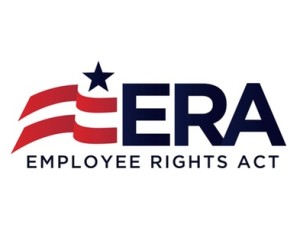 We’ve pointed out before that unions’ ability to effectively compel members—including members who don’t support the unions’ political preferences—to support the politicians of the unions’ choosing makes them political power players. Now, our Executive Director is telling Pennsylvanians that Trumka’s money is coming to influence their election, a large bloc of members’ opinions aside:
We’ve pointed out before that unions’ ability to effectively compel members—including members who don’t support the unions’ political preferences—to support the politicians of the unions’ choosing makes them political power players. Now, our Executive Director is telling Pennsylvanians that Trumka’s money is coming to influence their election, a large bloc of members’ opinions aside:
Last week, AFL-CIO President Richard Trumka pledged that labor will spend a staggering $300 million to unseat just five Republican governors, including Gov. Tom Corbett in Pennsylvania. Were all union members in these five states opposed to these governors, it would be one thing. But as recent data show, it’s quite another.
In Pennsylvania in 2010, 42 percent of members of union households voted for Corbett, yet 95 percent of union political contributions went to Democrat candidate Dan Onorato, according to FollowTheMoney.org. The same story is likely to play out this fall, as approximately 30 to 40 percent of union household voters will cast ballots for Republican candidates across the country whom their unions are planning to spend hundreds of millions of dollars to defeat.
Humorously, as unions toot their own horns about how much they spend (or plan to spend) on behalf of (overwhelmingly) Democrats, left-leaning media outlets are trying to downplay the role unions’ largely compelled political donations play in American politics, which led to a comedy of factual errors from The New York Times last week. Unfortunately for union members, the overwhelming partisanship in union political donations neither reflects many of their interests nor proves effective in convincing politicians to help members out. As UNITE HERE is discovering in its difficulty over Obamacare, being the Democratic Party’s “cheap date” is no way to win friends and influence people.
There is only one solution: Union members must have an effective means not to subsidize political candidates and causes they disagree with. A proposed piece of federal legislation would do just that by requiring unions to get opt-ins from members before spending dues money on politics. As our Executive Director writes:
There has to be a way to reduce this inequality of rights between unions and their members. Fortunately, there is legislation before both Congress that provides an opportunity for reform: the Employee Rights Act (ERA). It would be the first substantive reform to federal labor law in more than 50 years. One of its provisions would require unions to gain consent from members before spending their dues money on political causes or candidates. […]
It’s time members of Congress listen to their constituents and pass the ERA.



